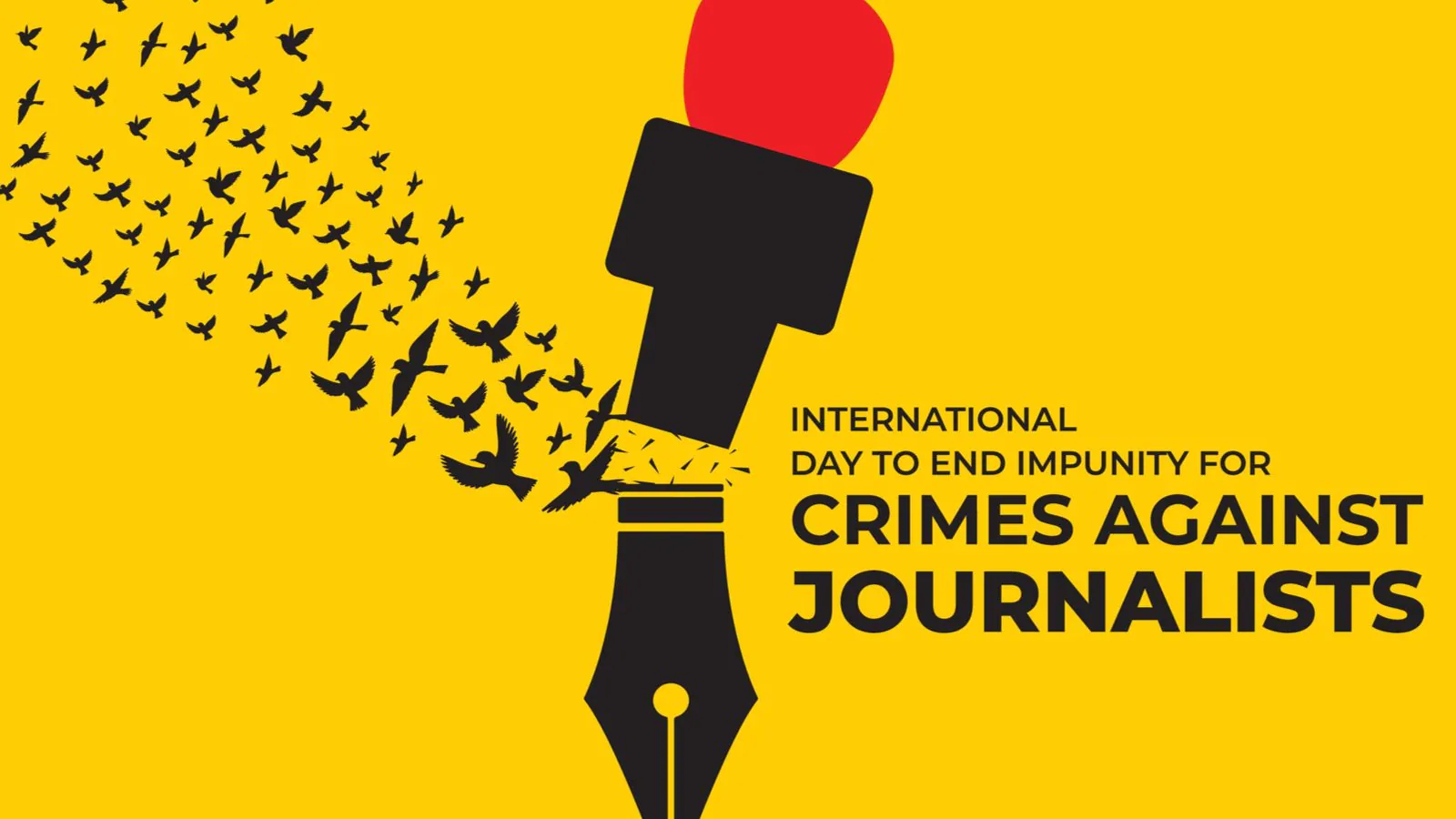Each year, the world gathers to accord special attention to November 2, as a day sets apart to raise global awareness and demand an end of impunity for crimes against journalists.
As the world gathers to discuss the critical issues of impunity for crimes against journalists on the rise in the face of deteriorating democratic regimes, the African Freedom of Expression Exchange (AFEX) network calls on governments in Africa, as a matter of urgency, to unravel mysteries around several incidents, cases of killings of journalists on the continent and bring the perpetrators to book.
For this year alone, from January to September, at least 11 journalists were killed on the continent and documented by AFEX.
These killings add up to several others perpetrated over the years on the continent, aside from hundreds of incidents of violations of press freedom and abuses against journalists. The violations range from physical assaults, arrest, and detention, seizure, and destruction of work equipment, to point out just a few among several categories of ill-treatments meted to the journalists who are simply doing their work of public information.
In Nigeria for instance, at least eight journalists have been killed since 2017 till date. The last incident of the killing took place in June this year. In Ibadan, the capital city of Oyo State in the southwestern part of Nigeria, unknown individuals gunned down Titus Eja Nla Badejo, a journalist working with Naija FM. The motives surrounding the killing of Badejo are yet to be revealed. There haven’t been any thorough and conclusive investigative reports to hold accountable the authors of this cold-blooded killing.
In Ghana, two years have passed since the murder of Ahmed Hussein Suale, a journalist working with the investigative journalist Anas Aremeyaw Anas. Suale was killed on January 16, 2019, in Accra by unknown gunmen. The report of the investigation is yet to be produced, and the masterminds of this crime are to be held accountable.
In Ethiopia, on May 9, 2021, two unidentified gunmen in Dembi Dollo, in the region of Oromia, killed Sisay Fida, a journalist working with Oromia Broadcasting Network. While Ethiopia, is entangled in the Tigray conflict, the safety and protection of journalists have been at high risk.
In Kenya, on April 7, 2021, Betty Mtekhele Barasa, a journalist working with Kenya Broadcasting Corporation (KBC), left behind her children and family. She was killed in cold blood before her family because of her work as a journalist. She left her children and husband to endure a life of emotional scares and trauma. Up to now, there has not been any conclusive investigative report to serve justice to the journalist, and hold accountable the perpetrators of this crime against this female journalist.
The above cases are a few instances among several others on the continent. Parents, loved ones, and colleagues of the murdered journalists are still waiting for justice. As the saying goes, justice delayed is justice denied. And the denial of justice increasingly emboldens the perpetrators of crimes against journalists, bolsters potential murderers, and sends a worrying signal to the public that the public authorities are failing awfully to play their roles as the custodian of fundamental tenets of the democracy, which are among others, freedom and justice.
According to UNESCO, as of 2020, 13% of incidents of crimes against journalists reported by member states, were resolved through the judicial process till their conclusive end. This represented a slight improvement, compared to 12% in 2019 and 11% in 2018.
However, these successful court resolutions of crimes against the journalists represent a meager, observable part of the crime iceberg against journalists, a disturbing issue against freedom of press and expression.
If these crimes against journalists, continue and remain unraveled and their authors are not brought to face the consequences of the rigor of the law, it will deal a blow to the democratic system and rule of law. Failure to serve justice for journalists murdered is the failure of the democratic system. It means the voiceless are defenseless, and any voices that rise to speak against the ills of the society may fear for their lives.
AFEX, therefore, calls on governments and the authorities on the continent to tackle the problem of crimes against journalists, by speeding up the investigations into these crimes and bringing the culprits of these crimes to justice to serve as a deterrent to any potential violators of press freedom.
Furthermore, AFEX demands that the authorities incorporate into the curricula of training of security apparatus and army, the important role of the media and journalists in a democratic society as promoters of the rule of law and transparency, accountability and good governance.
AFEX is also urging the media and journalists to put in place the necessary security measures and protocols, and develop more and more security awareness.




